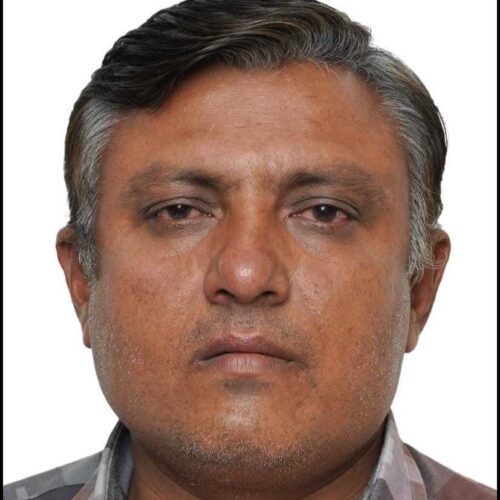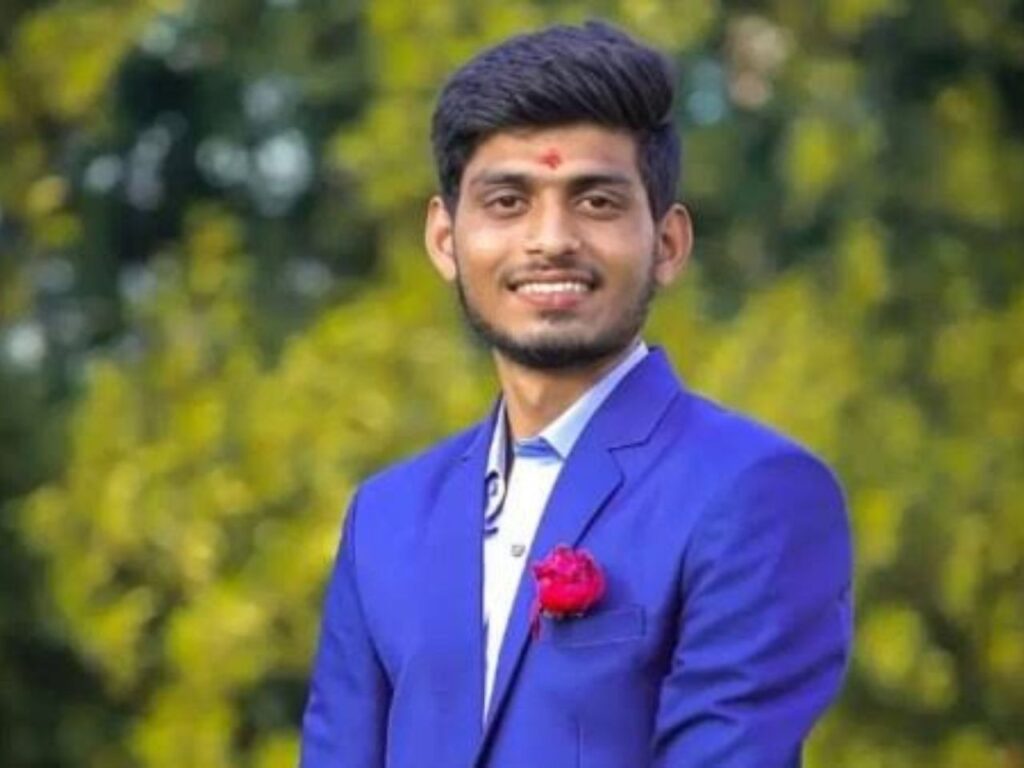Deceived and deployed: Man lured to Russia under false pretenses dies in Ukrainian airstrike
In January, we cried on call as he described the war injuries his friends suffered, some of whom underwent amputations. He pleaded with us to bring him home, but it was too late. Russians confiscated his passport, severing his contact with us, leaving Hemil in a desperate state.
- 2 years ago
May 13, 2024

SURAT, India — An agent promised my son, Hemil, a monthly salary of 45,000 rupees ($539 USD) to work in Russia. A significant amount for a lower-middle-class family in India, we agreed and paid the agent 300,000 rupees ($3,594 USD) for the process. Initially, the agent assured us that Hemil would receive a work visa, but upon its arrival, they gave him a tourist visa instead. The agent claimed he would convert it to a work visa within a month, citing connections with the Russian government and security forces.
For the first 10 days after Hemil’s arrival in Moscow, we had no contact with him. When he finally video-called us while wearing a military uniform, we felt shocked. Later, In January, we cried on call as he described the war injuries his friends suffered, some of whom underwent amputations. He pleaded with us to bring him home, but it was too late. Russians confiscated his passport, severing his contact with us, leaving Hemil in a desperate state.
Hemil and other victims became entirely dependent on their commanders. Escaping the front lines of the Russia-Ukraine War proved nearly impossible. They faced check points every two to three kilometers. They worked eight-hour shifts without breaks, constantly facing death. The contract forbade any holidays for six months. In his last video call, Hemil told us he entered the war zone as reinforcement. Tragically, we later learned that a Ukrainian airstrike killed him on February 21, 2024.
Read more stories from the war in Ukraine at Orato World Media
Broken dreams: a young man’s misguided pursuit of employment in Russia
At 23 years old, Hemil became the first young man from our community to travel so far from home. Hemil harbored big dreams. He wanted to grow our pottery business and become a successful. Ready to take on any job, no matter how small or obscure, Hemil remained determined. In our family, we always believed no job is too small if it pays well.
Nevertheless, Hemil’s ambition carried risks. He spent countless hours on his phone, scouring the internet for money-making opportunities. To me, it seemed he valued money more than his own life. In mid-November, he showed me a YouTube video featuring a man named Faisal Khan. In the video, Faisal flaunted many passports and claimed that he, along with other young men, worked for Russian security forces and obtained permanent residency there.
Our lack of education meant we did not fully understand what permanent residency entailed, nor were we aware that Russia was engaged in a full-scale war. In this YouTube video, Faisal’s convincing demeanor made him believable. I, along with many other parents, fooled myself into trusting him. Hemil understood he would have to work as a laborer in reconstruction efforts and felt prepared to do anything – even pick up garbage.
The job in Russia, as we understood it, included assisting security personnel in rebuilding cities ravaged by war. Despite our worries, Hemil appeared undaunted. A brave soul, he embarked on a journey to fulfill his aspirations. Yet, he remained unaware this opportunity would cut his life short and dash his dreams.
Hemil’s journey from India to Russia’s war zone
In November, we celebrated my son Hemil’s last birthday together before he left for Russia. On November 17, 2023, Hemil and 11 other boys left Chennai, India, all of whom eventually bonded over the shared pain of being deceived and conscripted into conflict. For 10 days after reaching Moscow, we heard nothing from Hemil. In a state of panic, we contacted the agent in Dubai. He reassured us that Hemil was in training, which prohibited phone use for security reasons.
Eventually, Hemil called us, donning a military uniform, and assured us he was doing well and was content. However, my paternal instincts doubted the veracity of Hemil’s assurances. A courageous young man, I knew he wished to spare us from worry. He instructed his friend not to disclose that he was sent into combat after 15 days of training and was far from the safe zone.
In December, Hemil sent us his first earnings. While we were overjoyed, it pained us to know our boy had toiled for this money. I urged him daily to flee, assuring him I was working to bring him home. Yet, he insisted he was satisfied. Unfortunately, he remained unaware that this income would soon cost him his life.

I persistently contacted the Indian mission in Moscow, fearing Hemil remained trapped. Nonetheless, because Hemil and the other boys had signed a year-long contract, the Indian mission remained powerless to intervene. In his last WhatsApp video call, he finally confessed to being in the war zone. Then, we got news of his harrowing death on February 21, 2024, following an airstrike by Ukraine. His friends inform us first of the devastating news, followed by confirmation from the Indian Embassy.
A father’s desperate plea: holding the Indian Embassy accountable
The tragic death of my son left me with a profound sense of loss and a multitude of questions. He did not go to Russia for leisure; he aimed to earn money and build a career. Yet, circumstances beyond his control led to his untimely demise. The Indian Embassy, which should be a beacon of hope and assistance for its nationals abroad, failed to take action.
Despite numerous calls and emails, their response remained inadequate, and their efforts fell tragically short. The embassy’s inaction feels disheartening, as though they prioritize business over the welfare of their people. The relations between India and Russia appear to be a contributing factor to this inaction. I wonder if maintaining diplomatic ties overshadowed the urgency of bringing stranded citizens home.
The embassy’s failure resulted in a situation where, after countless pleas for help, they returned merely the remains of my son, a stark reminder of their negligence. As a father, I feel tormented by thoughts that I could have done more. Should I blame the agent who enticed my son with promises of a lucrative, safe job? Do I blame the Russians who trapped him with a contract he could not understand and confiscated his passport? Perhaps I blame myself for not providing better guidance. Despite these agonizing doubts, I hold the Indian mission in Moscow most accountable for not acting swiftly and decisively to rescue my son and bring him safely home.



































































































































































































































































































































































































































































